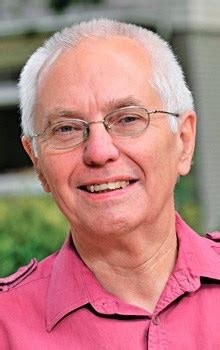A Quote by John Roberts
For many people during many centuries, mankind's history before the coming of Christianity was the history of the Jews and what they recounted of the history of others. Both were written down in the books called the Old Testament, [the Torah] the sacred writings of the Jewish people ... They were the first to arrive at an abstract notion of God and to forbid his representation by images. No other people has produced a greater historical impact from such comparatively insignificant origins and resources.
Quote Topics
Abstract
Arrive
Before
Books
Both
Centuries
Christianity
Coming
Down
First
Forbid
God
Greater
His
Historical
History
Images
Impact
Insignificant
Jewish
Jewish People
Jews
Mankind
Many
Notion
Old
Old Testament
Origins
Other
Others
People
Produced
Representation
Resources
Sacred
Testament
The History Of
Torah
Were
Written
Related Quotes
The Bible is a collection of writings by lots of different people written over maybe a thousand years, from a number of centuries before Jesus to a century after Jesus. I often like to refer to it as "the Scriptures" to make that point about it being lots of writings that were originally separate. What these writings have in common is that "the Old Testament" is writings that grabbed the Jewish people; writings that convinced them that they were God's word to them. And "the New Testament" is writings that grabbed people who believed in Jesus in the same way.
There are dozens of writings outside of the Bible that verify the historical accuracy of many of the names of people, places, and events mentioned in the Bible. In fact, external sources verify that at least eighty persons mentioned in the Bible were actual historical figures. Fifty people from the Old Testament, and thirty people from the New Testament.
There were others, women with stories that were told in a quieter voice: women who hid Jewish children in their homes, putting themselves directly in harm's way to save others. Too many of them paid a terrible, unimaginable price for their heroism. And like so many women in wartime, they were largely forgotten after the war's end.There were no parades for them, very few medals, and almost no mention in the history books.
The history of the Jews has been written overwhelmingly by scholars of texts - understandably given the formative nature of the Bible and the Talmud. Seeing Jewish history through artifacts, architecture and images is still a young but spectacularly flourishing discipline that's changing the whole story.
Whether I like it or not, most of my images of what various historical periods feel, smell, or sound like were acquired well before I set foot in any history class. They came from Margaret Mitchell, from Anya Seton, from M.M. Kaye, and a host of other authors, in their crackly plastic library bindings. Whether historians acknowledge it or not, scholarly history’s illegitimate cousin, the historical novel, plays a profound role in shaping widely held conceptions of historical realities.
Nothing's new since Genesis. And so everybody in their life thinks history began when they were born. Most people's historical perspective happened when they were born in the sense that nothing has ever been this bad. "We've never gone before this before," and of course we have. Things have been worse in many ways in the country.
Whole great chunks of written history are of little value to the psychohistorian, while other vast areas which have been much neglected by historians - childhood history, content analysis of historical imagery, and so on - suddenly expand from the periphery to the center of the psychohistorian's conceptual world, simply because his or her own new questions require material nowhere to be found in history books.
History isn't like that. History unravels gently, like an old sweater. It has been patched and darned many times, reknitted to suit different people, shoved in a box under the sink of censorship to be cut up for the dusters of propaganda, yet it always - eventually - manages to spring back into its old familar shape. History has a habit of changing the people who think they are changing it. History always has a few tricks up its frayed sleeve. It's been around a long time.
The evidence for our New Testament writings is ever so much greater than the evidence for many writings of classical authors, the authenticity of which no one dreams of questioning. And if the New Testament were a collection of secular writings, their authenticity would generally be regarded as beyond all doubt.


































